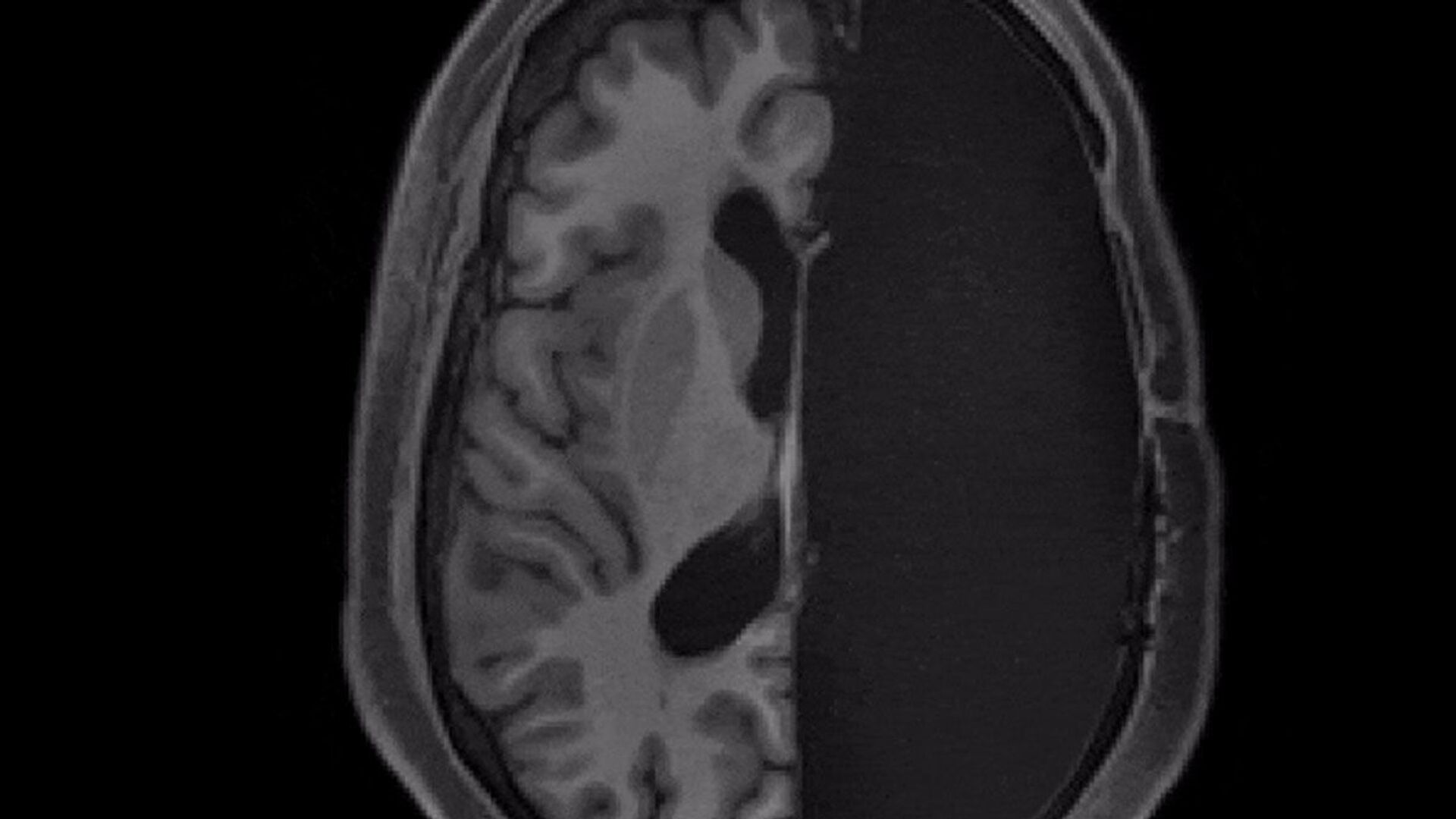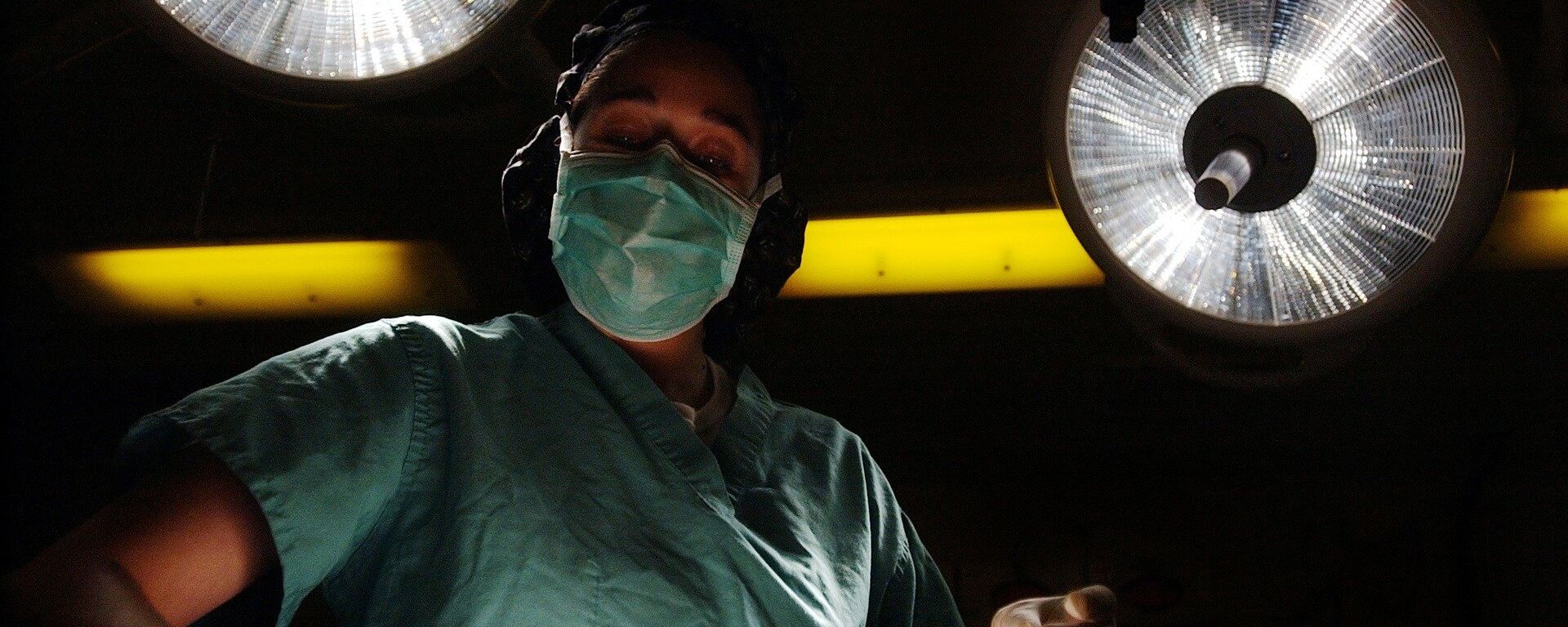https://sputniknews.in/20230519/indian-led-team-in-us-discovers-groundbreaking-treatment-for-brain-cancer-2050296.html
Indian-Led Team in US Discovers Groundbreaking Treatment for Brain Cancer
Indian-Led Team in US Discovers Groundbreaking Treatment for Brain Cancer
Sputnik India
Scientists have found cancerous cells link up with healthy brain cells to become hyperactive and cause speedy cognitive loss and death in patients.
2023-05-19T19:11+0530
2023-05-19T19:11+0530
2023-05-19T19:12+0530
india
health
health crisis
health issues
science & tech
science & tech
https://cdn1.img.sputniknews.in/img/07e7/05/13/2065126_0:240:1200:915_1920x0_80_0_0_85ebf5878ea349648d911e189b273df3.jpg
Indian scientists and a team of researchers from the University of California's San Francisco Medical Centre have discovered a brand new treatment that could bring a big change in curing brain cancer.A study conducted by Indian scientist Saritha Krishna and her fellow scientist Shawn Hervey-Jumper revealed that communication between healthy brain cells and cancerous cells could be manipulated to slow down or even halt the growth of a tumor.This could be done with a commonly-used anti-seizure drug that can effectively reduce the hyperactivity of the tumor cells and even halt their growth.A study published in the latest issue of the science journal "Nature" argues that this treatment is more beneficial to patients with glioblastoma, considered the most fatal among adult brain cancers.
https://sputniknews.in/20230503/indian-doctors-reconstruct-tongue-with-microvascular-surgery-1798880.html
india
Sputnik India
feedback.hindi@sputniknews.com
+74956456601
MIA „Rossiya Segodnya“
2023
Sangeeta Yadav
https://cdn1.img.sputniknews.in/img/07e6/0c/0f/110602_0:0:641:640_100x100_80_0_0_c298016a79eb02ef8caa9d1f688c12a5.jpg
Sangeeta Yadav
https://cdn1.img.sputniknews.in/img/07e6/0c/0f/110602_0:0:641:640_100x100_80_0_0_c298016a79eb02ef8caa9d1f688c12a5.jpg
News
en_IN
Sputnik India
feedback.hindi@sputniknews.com
+74956456601
MIA „Rossiya Segodnya“
Sputnik India
feedback.hindi@sputniknews.com
+74956456601
MIA „Rossiya Segodnya“
Sangeeta Yadav
https://cdn1.img.sputniknews.in/img/07e6/0c/0f/110602_0:0:641:640_100x100_80_0_0_c298016a79eb02ef8caa9d1f688c12a5.jpg
indian scientists, researchers from the university of california, san francisco medical centre, curing brain cancer, study conducted by indian scientist, saritha krishna, healthy brain cells and cancerous cells, slow the growth of tumour, science journal nature, patients with glioblastoma, adult brain cancers,
indian scientists, researchers from the university of california, san francisco medical centre, curing brain cancer, study conducted by indian scientist, saritha krishna, healthy brain cells and cancerous cells, slow the growth of tumour, science journal nature, patients with glioblastoma, adult brain cancers,
Indian-Led Team in US Discovers Groundbreaking Treatment for Brain Cancer
19:11 19.05.2023 (Updated: 19:12 19.05.2023) Scientists have found cancerous cells link up with healthy brain cells to become hyperactive and cause speedy cognitive loss and death in patients.
Indian scientists and a team of researchers from the University of California's San Francisco Medical Centre have discovered a brand new treatment that could bring a big change in curing brain cancer.
A study conducted by Indian scientist Saritha Krishna and her fellow scientist Shawn Hervey-Jumper revealed that communication between healthy brain cells and cancerous cells could be manipulated to slow down or even halt the growth of a tumor.
This could be done with a commonly-used anti-seizure drug that can effectively reduce the hyperactivity of the tumor cells and even halt their growth.
A study published in the latest issue of the science journal "Nature" argues that this treatment is more beneficial to patients with glioblastoma, considered the most fatal among adult brain cancers.
"These experiments revealed a key role of a protein called 'thrombospondin-1' in this neuronal hyperexcitability and that the drug, gabapentin, a commonly used anti-seizure medication, successfully reduced neuronal hyperexcitability and halted further tumour growth," the study said.



